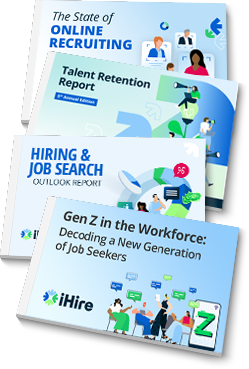- Employer Resources
- |
- Last Updated: February 08, 2023

4 Disadvantages of Social Media Recruitment That Will Make You Reconsider How You Screen Candidates
Screening employees on social media? It may not really be worth it.
As social media has taken over much of daily life, its influence has extended beyond giving families and friends an easy way to stay in touch with one another. Fifteen years ago, recruiting employees on a personal social networking platform was unheard of. Nowadays, what’s important is not if but how companies use social media to recruit.
Should companies really be screening employees’ personal social media accounts like Facebook or TikTok? Does it work? How do the advantages and disadvantages of social networking and recruiting compare?
Create Your Account Today

Social media profiles may present unreliable and/or inconsistent representations of candidates
One of the biggest disadvantages of social media recruitment is that an individual’s profile often presents a highly sanitized version of their personality and life. One of the biggest arguments for relying on social media when recruiting employees is that it offers a free “background check,” but this check becomes fairly worthless if the candidate’s background has been scrubbed of any negative information.
At this point, most professionals have a basic understanding of how companies are finding candidates on social media, which means that they will have prepared themselves – and their social media accounts – for a recruiter to find them.
It’s hard to escape bias when using social media for recruitment
There are a number of different types of biases that can impact a hiring decision, and social media profiles create a perfect environment for favoritism and partiality. A single Facebook comment, LinkedIn post, or TikTok video could color a recruiter’s entire perception of a candidate. The superficiality of a lot of social media profiles also lends itself to the development or reinforcement of stereotypes, which are hard to overcome and never an appropriate aspect of the hiring process.
The act of poring over a person’s social media accounts will provide a more in-depth glimpse of their personality and background. However, it’s difficult to remain objective in the face of so many intimate details, many of which will be entirely unrelated to a candidate’s professional skills, expertise, or potential.

How companies use social media to recruit may be illegal
Along with the concerns regarding bias in social media recruitment is the legitimate potential for discrimination. Because of this, the Society for Human Resource Management (SHRM) offers legal guidance to ensure social media and hiring practices comply with equal employment opportunity (EEO) and/or affirmative action guidelines:
- Don’t ask for passwords: Several states have outlawed the practice of requesting an applicant or employee’s social media password. To be on the safe side, employers should only view content that is publicly available.
- Let HR handle social media screening: To avoid potential liability, have an HR representative review a candidate’s social media presence rather than a hiring manager or supervisor. HR professionals are more likely to know what information can and cannot be considered.
- Don’t use social media for initial screening decisions: Checking social media profiles prior to an interview exposes you to possible discrimination claims, so no matter how companies use social media to recruit, it should never be relied upon early in the hiring process.
- Be consistent: If you choose to review the social media profile of one applicant then you must check every candidate’s social media presence.
- Document your decision making: Make sure to take a screenshot or print out any information you come across on social media that impacts your hiring decisions. This will protect you in case the candidate deletes offending material after you have reviewed it.
Not all candidates are on social media
One final note to consider concerning social media and hiring practices is that not every professional has a profile on every platform. While Facebook continues to be a dominant force in social media, there are many individuals who are deleting their profiles because of the company’s practices or simply to detach themselves from social media entirely.
If your hiring organization is only looking for candidates on social media, you may be missing out on top talent. You shouldn’t use the absence of a social media presence to discount candidates that may be a great fit for your position.
When it comes to recruiting, a more holistic approach using job postings and resume databases is still the best strategy to identify candidates. Save social media screening for further along in the process and don’t allow it to dominate your decision making.

Originally Published: November 29, 2022
RELATED RESOURCES
Hiring? You're in the Right Place.
- Reach unique talent: 51% of our candidates aren't using other job boards
- Connect your ATS and get 6x more applications with iHire's apply process
- Get matching candidate resumes sent straight to your inbox
We Value Your Privacy




